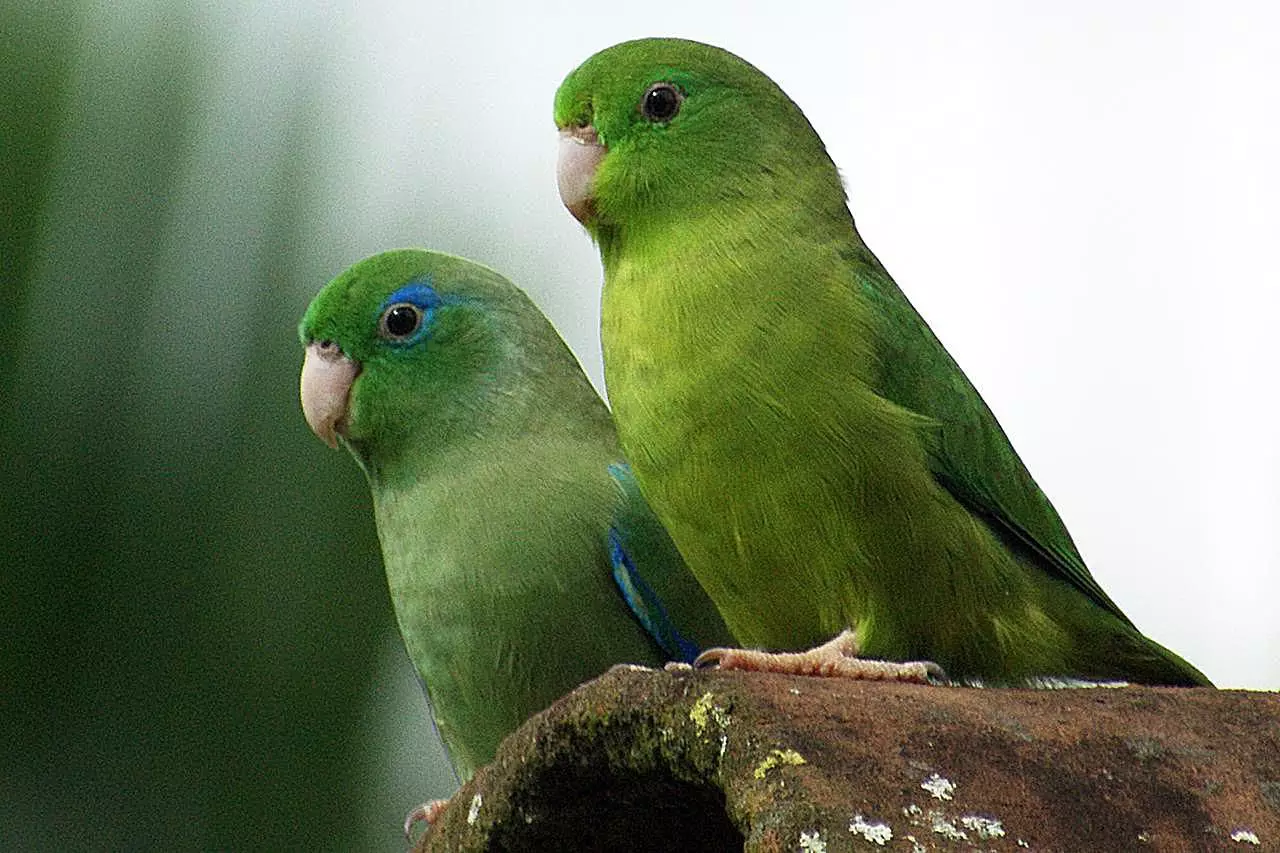Parrotlets, the diminutive royalty of the avian world, are captivating little parrots known for their playful personalities and vibrant charm. Despite their tiny stature, these birds pack a significant punch when it comes to companionship and interaction, often surprising their owners with their ability to express themselves. Though not every Parrotlet will become an accomplished conversationalist, many owners delight in the unpredictability of their pet’s ability to learn phrases and sounds, providing an engaging dimension to their ownership experience. However, potential owners should be mindful that the best way to ensure a talking companion is to adopt a Parrotlet that already has a vocabulary.
Surprisingly, the Parrotlet is not just a smaller version of other parrots, but a distinct member of the parrot family. Their closest relatives are the more prominent Amazon Parrots, leading to behavioral traits that mirror those of their larger cousins. This lineage contributes to their spirited demeanor and social tendencies, which can often manifest in lively interactions with their human companions. Resembling “pocket parrots,” Parrotlets are like miniature embodiments of the larger parrots, often enticing bird enthusiasts with their undeniable charm and cuteness.
One of the compelling aspects of owning a Parrotlet is their longevity. With proper care, these little birds can live for an impressive span of 20 years or even longer, requiring a serious commitment from potential owners. Before welcoming a Parrotlet into one’s home, it is essential to recognize that this commitment is not just short-term; adopting a Parrotlet means being prepared for years of companionship and nurturing. Owners should reflect on their lifestyle and ability to dedicate time to a pet that will remain by their side as part of the family for decades.
Parrotlets are often celebrated for their exuberant personalities that belied their petite size. They are known to have vibrant and, at times, playful attitudes that can turn them into amusing little characters. Potential owners should prepare to engage with and spend time with their Parrotlets daily. Without appropriate socialization and stimulation, Parrotlets can exhibit destructive behaviors stemming from boredom or frustration. Therefore, the key to a happy and well-adjusted Parrotlet lies in consistent handling, mental stimulation, and an abundance of interactive play.
In their natural habitat, Parrotlets are incredibly active, engaging in flying, foraging for food, and avoiding dangers. To support their health and well-being in captivity, owners must replicate this active lifestyle as much as possible. Engaging activities can include flight time in a safe environment, puzzles, and various toys promoting foraging behavior. Ideal Parrotlet care demands a commitment of three to four hours daily of undivided attention, allowing for mutual interaction and social bonding. Understanding their needs for physical activity and companionship will enrich both the Parrotlet and the owner’s life.
Effective training is critical to cultivating a strong bond with a Parrotlet. Starting with basic commands and gradually introducing more complex tasks can help shape a well-behaved bird. Positive reinforcement techniques, such as treats and praises, typically yield the best outcomes. Training not only encourages good behavior but also stimulates a Parrotlet’s mind, making it an essential aspect of their care. A trained Parrotlet is generally a more content bird, one that interacts positively with its environment and the people around it.
Parrotlets are extraordinary companions that offer joy and a unique companionship experience. Despite their small size, these birds bring big love and personality into the home. Prospective owners should remain aware of their structured needs—social interaction, physical activity, and mental stimulation are crucial. With the right approach and commitment, a Parrotlet can become a delightful member of the family for many years to come. Before making such a commitment, it is vital to consider one’s capacity for long-term dedication to these playful feathered friends.

